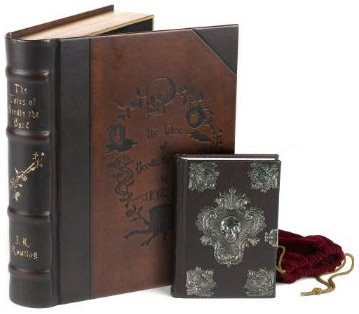"The Bicentennial Man" had some crazy... not... chronological... business going on. It begins with Andrew requesting that another robot perform a mysterious surgery on him. We don't find out until near the end, however, that the surgery is one that will complete his transformation from robot into man. It's also divided into chapters, which seem to pertain individually to specific phases of Andrew's life. For instance, in chapter two, which begins on page 247, Andrew begins his life with the Martin family, and his focus is primarily playing with Little Miss, for as she put it, she "order[ed him] to play with [them] and [he] must follow orders." Then, in chapter three, the next phase of Andrew's life begins, in which Andrew's goal becomes fulfilling his role as the unique robot with the skills: "Strange. Of course, we're attempting generalized pathways these days.... Really creative, you think?" - p. 250
Point of View
The narrator is third-person omniscient. The story is Andrew's, so the narrator chronicles his life more closely than anyone else's, but the narrator also knows everything about all of the characters. For instance, on page 250, "[Little Miss] never forgot that the very first piece of wood carving he had done had been for her." Little Miss never speaks these words aloud, but the audience learns it from the narrator. Also, it is in third-person because the words "you" and "I" are only used in direct quotes from the characters. Also also, the story isn't told from the perspective of one of the characters involved in the story, but rather from a third party who knows everything about them.
Characterization
The story was awash with a healthy mix of both direct and indirect characterization, I think. For instance, on p. 249, the narrator, drawing on Andrew's observations, says "[Merton Mansky] had drawn features and a lined forehead and looked as though he might be younger than he looked." The part about the drawn features and lined forehead are merely observations that lead the reader to conclude that he looks kind of old. The second part, however, is a subjective observation on which the reader can have no comment but to accept it; thus, it is direct characterization. Vital to the story is the progression of Andrew's character as he grows slowly more and more human. In the beginning of the story, Andrew's range of facial expression is almost nonexistent. By chapter fourteen, on page 276, we see Andrew exclaim "Paul!" and have it described as "in concern." Then, by page 22, Andrew smiles as he shakes hands with the President, who declares him "a Bicentennial Man."
Setting
Usually, when I think of setting, I think of place first, and then time as an unimportant secondary element. In "The Bicentennial Man," however, the more important thing to note is that the story is science fiction; it takes place in the somewhat foreseeable but still significantly distant future, when robot technology is taking a leap forward. As far as geographical location, I feel like the main point emphasized is that it did indeed take place on Earth. For instance, on page 256, at the end of chapter 7, it says "[The decision] was eventually upheld by the World Court." Also, the bit in chapter 5 when it describes how "Ma'am had joined an art colony somewhere in Europe, and Miss was a poet in New York" as well as the robot Andrew's emphasis on freedom indicate strongly that the story is set in the United States of America, but not in New York. That Little Miss went there and came back indicates to me that probably, the Martins lived somewhere northeast.
Theme
I think the major theme was that freedom is invaluable, and bigotry is a crime. One sentence that jumped out at me was on page 254: "Freedom is without a price, Sir," said Andrew. "Even the chance of freedom is worth the money." The Court doesn't want to give him freedom, though, because they want to maintain human superiority over robots. Then, when Andrew wants to become a human, they don't want to allow that either. This was because, as stated on page 288, "They cannot tolerate an immortal human being, since their own mortality is endurable only so long as it is universal."
Another item that jumped out at me as a possible minor theme was this: "With great power goes great responsibility." - p. 266
That probably only jumped out at me because either Isaac Asimov or Stan Lee is a plagiarist, but... yeah.
Andrew is freeeeee!
Plagiarism?



